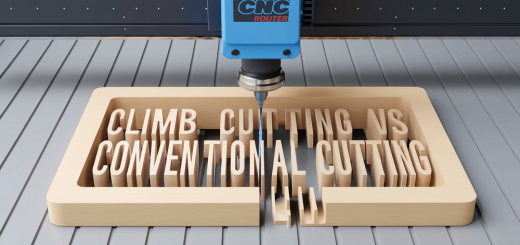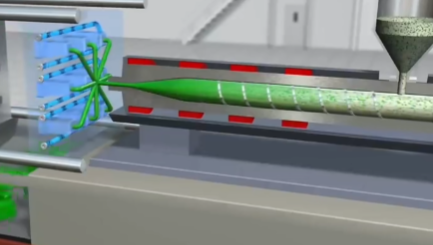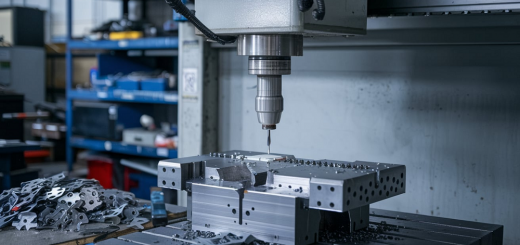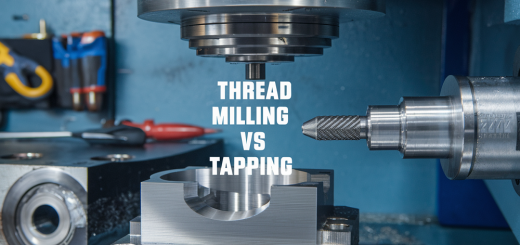How To Build CNC Machine Shop & Make Money in 2025
Starting a CNC machine shop is a dream shared by many machinists, operators, and programmers. It’s not just about making parts—it’s about building a business that solves real problems, creates opportunities, and secures a future for you and your family. In 2025, the manufacturing industry is poised for growth, and the time to act is now. Here are the Top 10 Tips to help you build a successful CNC shop and set yourself up for financial success.

10. Vision: Know What You’re Building
Everything begins with a clear vision.
“Vision is what drives the entire process. It’s about imagining the shop you want to create and the life you want to build. Many successful shop owners started as machinists or operators, dreaming of a better way to do things. The key is to articulate that vision, hold onto it, and use it to fuel your determination.”
Having a vision isn’t just about dreaming—it’s about planning. Think about the equipment, the types of parts you’ll make, and the reputation you want to build. Let this vision guide every decision you make.
9. Understand Your “Why”
Having a reason that drives you is essential.
“The ‘why’ is what keeps you going during tough times. For some, it’s about creating a better future for their family. For others, it’s about solving challenges in the industry or building something that lasts. Whatever your reason, it has to be strong enough to push you through sleepless nights and long hours.”
Understanding your “why” gives you purpose. It’s not just about making money—it’s about making an impact, whether it’s for your family, your community, or the industry.
8. Build Your Skill Set and Credibility
Before running a shop, you must master your craft and build trust in the industry.
“Every successful shop owner starts by being the best at what they do. Whether it’s programming, operating, or machining, the goal is to learn every machine, every toolpath, and every process. Treat your current job as a stepping stone, and always strive to solve problems better than anyone else.”
Credibility is everything in manufacturing. Customers need to trust that you can deliver, and that trust comes from your skills, your consistency, and your dedication to excellence.
7. Start Small
You don’t need a massive operation to begin. Starting small allows you to minimize risk while building experience.
“Many successful shops began with a single machine in a garage. Affordable starter machines make it easier than ever to get going. Work nights and weekends while keeping your day job, and grow as you gain customers and confidence.”
You don’t need the latest and most expensive equipment to start. Focus on solving problems for a handful of customers, and scale up as your business grows.
6. Choose the Right Equipment
Your success depends on choosing equipment that matches your needs and budget.
“Selecting the right machine requires understanding the types of parts you’ll make. Are you working with aluminum? Then high RPMs and horsepower matter. Working with steels or superalloys? Torque and low-end power are essential. Don’t overspend on equipment that could put your business at risk if customers don’t come through.”
Your equipment should align with the materials you’ll work with, your niche, and your financial situation. Starting with reliable, flexible machines is often the best choice for new shops.
5. Find Your Niche
Specialization is the key to standing out in a competitive market.
“Successful shops often dominate a specific niche. Whether it’s aerospace fittings, custom tooling, or low-quantity, high-precision parts, focusing on a niche allows you to master a specific process and solve problems better than your competitors.”
Finding a niche doesn’t just make you stand out—it also makes it easier to market your services and build long-term customer relationships.
4. Price Your Work Correctly
Pricing is one of the most critical skills for running a CNC shop.
“Many machinists struggle to price their work effectively. The goal is to be competitive while still making a profit. If your price is higher, explain why—whether it’s better quality, faster turnaround, or innovative solutions. Efficiency often trumps hourly rates, so focus on running smarter and faster than your competitors.”
Pricing isn’t just about covering costs; it’s about communicating your value to customers. Be transparent, and always aim to solve their problems in a way that justifies your price.
3. Find Customers
Without customers, even the most efficient shop can’t survive.
“Finding customers has never been easier. Use platforms like LinkedIn to connect with buyers and purchasing managers. Share your work, showcase your skills, and build relationships. You can also leverage industry platforms like CNCExpert.com to create a professional profile and attract leads.”
Networking and marketing are just as important as machining. Build relationships, share your story, and actively promote your capabilities to potential customers.
2. Manage Cash Flow and Finances
Cash flow is the lifeblood of any business.
“Many shops fail not because they lack skill, but because they mismanage their finances. Start by keeping your overhead low. Use payroll services to stay on top of taxes, and negotiate terms with suppliers to reduce financial strain. Always plan for delays in payments from customers.”
Good financial management is about more than paying bills—it’s about creating stability and ensuring you can weather slow periods or unexpected challenges.
1. Master the Art of Business
Running a CNC shop isn’t just about machining—it’s about mastering the business side of things.
“Success comes down to building relationships, solving problems, and creating value. Treat your employees well, create a positive shop culture, and always focus on delivering exceptional quality and service to your customers.”
The art of business is about more than making money. It’s about building something that lasts, creating opportunities for others, and always striving for excellence. From negotiating contracts to creating an inspiring workplace, every decision matters.
Building a CNC machine shop in 2025 is about more than just machining—it’s about vision, grit, and strategy. If you focus on these 10 tips, you’ll be well on your way to success. And remember: manufacturing is rising. Opportunities are everywhere. Go out there and make it happen.

















